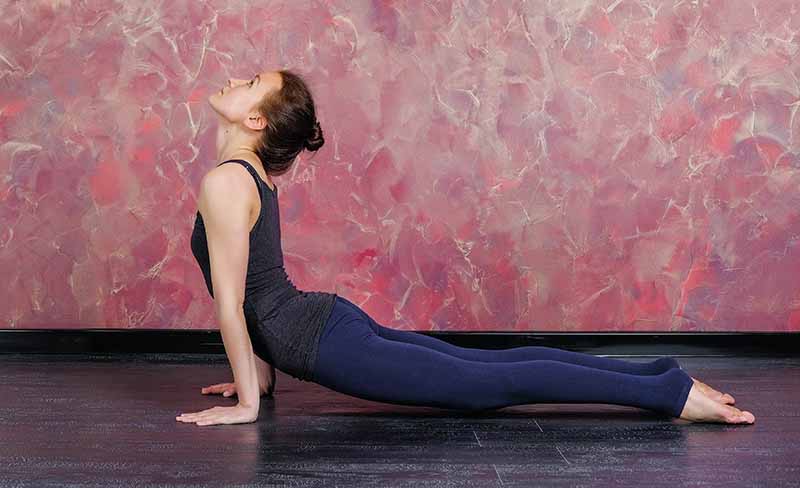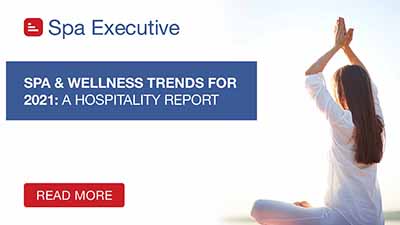
Stress and anxiety combined with a desire to optimize immunity in the wake of 2020’s pandemic shutdowns make wellness more important than ever in 2021.
Wellness is more important than ever in 2021.
Consumers are in search of wellness solutions to cope throughout the year as we continue to navigate the COVID-19 pandemic. Hospitality companies that rise to meet that need may be better positioned for success than those who don’t. Here’s why:
Stress and anxiety are at an all-time high
As discussed in our trends report for 2021, stress and anxiety are at a high. Research released in the fall found that symptoms of anxiety and depressive disorders had more than tripled among U.S. adults compared to the same time last year. Another study by the International Committee of the Red Cross (IRCR) found that over half — 51% — of respondents surveyed across seven countries said that the global crisis has negatively impacted their mental health, and a survey conducted in Canada, found that two out of five respondents reported worse mental health in the pandemic, a number that rose to 54% among those who had to isolate with COVID-19 symptoms. Insomnia is also at peak levels.
This matters because it affects not only our mental health but our physical health as well, which in turn affects our quality of life and life expectancy, and taxes our health systems, economies, and society as a whole.
Another study in the journal Cardiology found that the pandemic is exacerbating existing stress levels to the point where doctors are seeing an increase in stress-related heart disease. Psychological stress is associated with all kinds of negative health outcomes, including heart disease, depression, diabetes, and infectious diseases. According to research conducted at Carnegie Mellon University, this may be because chronic psychological stress is connected to loss of ability to regulate the inflammatory response, which may promote the development and progression of disease. People suffering from psychological stress are more susceptible to developing common colds, the symptoms of which are not caused by the virus but are actually a “side effect” of the inflammatory response triggered by the body to fight infection. “The greater the body’s inflammatory response to the virus, the greater is the likelihood of experiencing the symptoms of a cold,” said a research brief.
The brief also states: “Because inflammation plays a role in many diseases such as cardiovascular, asthma and autoimmune disorders, this model suggests why stress impacts them as well.”
Consumers want to optimize immunity
Moreover, even with a vaccine rolling out over the next few months, there’s still a lot of uncertainty around what the future looks like with tiered distribution and new emerging virus strains. People are prioritising their physical health with supplements, and food and drink, with ingredients purported to protect against illness, benefit the immune system, and improve overall health and wellness.
Research company, New Hope Network, reported that, in 2020, sales of cold, flu and immunity supplements saw a 51% increase over 2019, and surpassed 5.1 Billion USD for the first time. The number of Google searches related to immune-boosting foods also grew during the spring lockdowns. And a consumer survey by Innova found that one in three global consumers say their concerns about immune health increased in 2020 over 2019 and 60% are looking for products that support immune health.
Spa & hospitality is uniquely positioned
Wellbeing support and wellness offerings are more important than ever, and spa and hospitality — from hotel and resort groups to wellness retreats to independent, boutique hospitality companies — are in a unique position to meet this need, which will in turn help sustain businesses while the industry recovers.
Wellness can be a revenue booster. According to HotelManagement.net, “At Wyndham Hotels & Resorts’ 2018 brand conference, Danica Boyd, at the time the company’s senior director of operations for full-service brands, said that health-conscious travelers spend as much as 130 percent more on hotel amenities than other guests.” Also, the GWI reported that the global spend on wellness tourism was $639.4 billion in 2017 and that the sector grew 6.5 percent per year from 2015 to 2017, more than twice the growth rate for general tourism. In 2017, international wellness tourists, on average, spent 53% more than general tourists while domestic wellness travelers spent 178% more than the general domestic tourists.
How spa treatments improve health outcomes
Here is some evidence to demonstrate how hospitality wellness and spa treatment offerings can meet the demand for wellness among consumers in 2021:
Massage:
- Numerous studies have demonstrated that massage is associated with decreases in stress, cortisol, and pain.
- Massage is also associated with increases in immune function and production of serotonin and dopamine.
- One study found that people who received a 45-minute massage had an increased number of lymphocytes (white blood cells that play a role in defending the body from disease).
- Massage is correlated with lower depression levels and lower job stress scores.
- 30-minute massage sessions over five weeks is correlated with lower blood pressure, less anxiety, less depression and hostility, and decreased cortisol (the stress hormone).
Saunas:
- Frequent sauna bathing is associated with lower death rates from cardiovascular disease and stroke, as well as all-cause mortality.
- Men who went to the sauna four to seven times a week were 66% less likely to be diagnosed with dementia, and 65% less likely to be diagnosed with Alzheimer’s disease, than those taking a sauna once a week.
- Taking a sauna four times a week cut the risk of pneumonia by 40%.
Spa bathing:
- Taking a hot bath improves health and can burn calories.
- In one study, bathing resulted in about as many calories being burned as a half-hour walk (around 140 calories).
- Research suggests that repeated passive heating may contribute to reducing chronic inflammation.
- A hot bath a couple of hours before bedtime may lower core body temperature and lead to better sleep.
Virtual, touchless, and hybrid experiences
The way in which wellness services are offered has been changing and will continue to change. Companies will add virtual and touchless experiences, and hybrids of these. Fitness classes, for example, can be kept small onsite and those same classes be made available in virtual form with a membership fee sold at a lower cost. Other types of classes and programs for onsite guests can also be similarly made available to people in their homes with memberships. We will see a rise in virtual wellness consultations. Touchless energy healing experiences like reiki and sound vibrational therapy will become more popular, and in-room wellness, from workout and meditation videos to sleep optimization will increase the appeal of any getaway location.
2021 is off to a difficult start for many but it’s also a time of opportunity. The more ready hospitality companies are to deliver what guests want, the more successful they will be.
It’s time to look into our crystal balls and predict the future for the year ahead. Subscribe to our newsletter and download our special report on the trends we’ll be watching: Nine spa and wellness trends for 2021. Download here.
Spa Executive is published by Book4Time, the leader in guest management, revenue and mobile solutions for the most exclusive spas, hotels, and resorts around the globe. Learn more at book4time.com.




